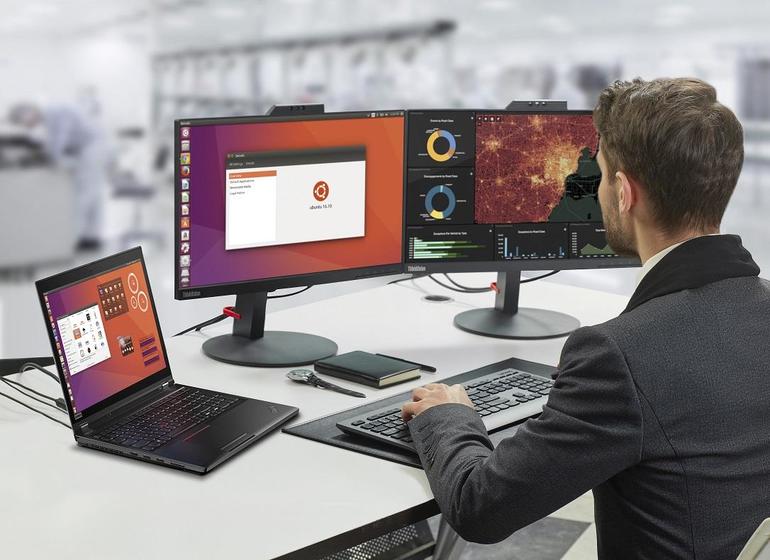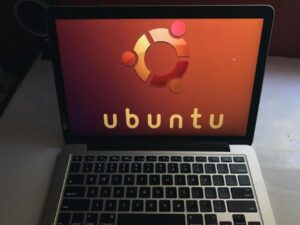Lenovo is now tossing some serious support behind Linux. Read Jack Wallen’s take on this announcement.

Lenovo
2020 has done everything it can to rob of us joy and progress. It seems there’s some new bit of news that deflates all hope and sucks the wind out of our sails. But then, we get the slightest glimmer of good news and, no matter how insignificant it may seem in the grand scheme of things, we hold onto like it like it was a pot of gold at the end of every rainbow in the sky.
Such is the case when Lenovo made the announcement that they were broadening their support for desktop Linux.
You read that right, Lenovo is about to support Linux on the desktop, in a big way.
SEE: Implementing DevOps: A guide for IT pros (free PDF) (TechRepublic)
To be clear, this comes on the heels of a number of new Linux desktop support news. This year we’ve seen the rise of Purism, Tuxedo Computers, Pine64, Juno Computers, Vikings, Dell’s continued support with the XPS Dev edition laptop and the Precision line, and now Lenovo.
But Lenovo is taking this one step further by offering full certification and support across their entire line of workstations.
Again, you read that right. The entire line of Lenovo’s workstations will be certified to run Linux (minus the IdeaPad). On top of that, they’ll be selling both ThinkStation PCs and ThinkPad P Series laptops with either Ubuntu or Red Hat Enterprise Linux preinstalled. To sweeten the deal further, this isn’t just one model in each line, it’s every single model.
Lenovo is also including full web support as well as dedicated Linux forums, configuration support, and more.
This is a tectonic shift in the landscape. This is a massive company showing serious support for both Ubuntu Linux and Red Hat Enterprise Linux.
Rob Herman, the general manager of the Executive Directory Workstation & Client AI Group at Lenovo, put it simply when he said, “More than 250 million computers are sold each year and NetMarketShare reports that 2.87%—roughly 7.2 million users—are using those computers to run Linux.”
Numbers don’t lie and Lenovo is smart in looking at the number instead of the percentage. 7.2 million users isn’t a blip, it’s a fact.
Has bigger news for Linux come through the pipe in recent history? Not that I can remember. And this comes on the heels of Linux already seeing a rise in desktop market share.
But I have to confess, I’m a bit torn on this.
Before you react, let me explain.
A bit of preface
In the grand scheme of things, the Lenovo news is an incredible windfall for Linux and open source. It puts an end to the days of being the underdog. Linux is now accepted by the biggest PC OEMs on the planet. That can no longer be disputed–it’s fact.
But, what then happens to all the smaller vendors? System76, Zareason, Purism, Tuxedo Computers, Vikings–all of these businesses that have been tirelessly supporting open source and selling outstanding hardware pre-installed with Linux. Thing is, with the likes of Lenovo offering Linux-based hardware, those smaller companies might not be able to compete.
Or can they?
Pricewise, the Dell XPS, and the Lenovo ThinkPad P laptops are similar to those sold by System76 and Tuxedo Computers. We’re not going to see those smaller vendors losing out to Lenovo–at least on the consumer level. But, when you consider that businesses tend to get large volume discounts from big OEMs, that price point match might start to change. Can the smaller companies match those discounted prices? A quick scan through a few websites seems to indicate they do not.
When asked about the Lenovo news, System76 had this to say: “This is yet another proving point that Linux is making waves in a very positive way. We’re excited to see more companies embracing Linux as a solution. Since a rising tide raises all boats, were also looking forward to the competition–more players means we’ll all have to work harder to make even better products. On that note, we’re going to continue to Lead the open source wave with revolutionary laptops, desktops, and servers for customers in need of out of the box Ubuntu and Pop!_OS.”
What’s important to understand is that support from the open source and Linux communities for these smaller shops must continue. Companies like System76 are a big reason why desktop Linux continued climbing up that steep mountain called “Acceptance.” Had System76 failed, there’s no telling where desktop Linux would be at the moment. If I had to guess, without the support of System76, Linux on the desktop would be exactly where it was in the early 2000s.
It’s important to remember who has had the backs of the Linux and open source communities all this time.
And yet, it’s still great news
With that preface out of the way, I can go back to the, “Oh, wow, this is great news” part.
It is great news.
But it doesn’t just end with hardware. Case in point, Lenovo will be upstreaming their device drivers to the Linux kernel. That means everything will work on their hardware out of the box. No tweaking and compiling to get things like fingerprint readers, sound, and Wi-Fi to work.
I’ve been using Linux since 1997 and I can tell you that no announcement has held such weight as this. Lenovo’s announcement might well be the tipping point Linux has needed. With enterprises depending on Linux for their backends, pipelines, and DevOps delivery systems, seeing a company like Lenovo supporting the open source operating system on the desktop might be just what they need to finally accept that Linux is not just a viable option for an end-user operating system, but the smarter option.
The caveat
All of this great news comes with a caveat, one that I’ve had to add to so many articles over the years. Lenovo’s support of Linux begins and ends with success. Once Lenovo starts selling laptops and desktops preinstalled with Linux, it’s up to consumers and businesses to actually purchase them.
That’s been a sticking point with Linux users. Why spend a grand on a new laptop or desktop, when you can slap a lightweight Linux distribution on the old machine and eke out a few more years of use? That’s the responsible thing to do. It’s also something many Linux users have done and will continue to do.
But if Lenovo’s program fails, it will end. Because of this, Linux users need to dig into their pockets and buy. At the same time, if they stop supporting the little guys, those businesses that have helped prop up Linux on the desktop for years might fall.
It’s a fine line to walk, but one that should be travelled with care. Maybe you buy a laptop from Lenovo and a desktop from System76. After all, it’s my opinion that Lenovo (or any company) isn’t going to best the System76 Thelio on the desktop.
No matter which path you take, you now (as a Linux user) have more options than you previously did. And even with 2020 doing it’s best to kick us while we’re down, that small bit of good news seems all the more better.
Especially for those of us who’ve watched the slow, steady rise of Linux on the desktop.
Also see
Source of Article



